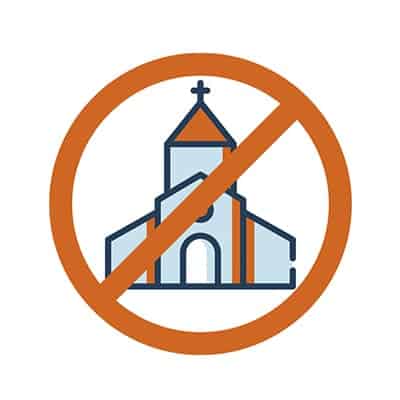Work has its Origins in the Divine Plan
Work Makes us Co-creators with God
Work is a Vocation
Work Fulfills Man
The Importance of Rerum Novarum
“We were created with a vocation to work.”
Pope Francis, 128
“[W]ork is a key, probably the essential key, to the whole social question”.
Pope St. John Paul II, 3
“[T]he door to the dignity of a man is work.”
Pope Francis
The Divine Plan
“Work constitutes a fundamental dimension of man’s existence on earth.”
Pope St. John Paul II, 4
- “In the divine plan [work] retains its value, unaltered.” (Pope Benedict XVI)
- “[W]hen a man works…he goes outside of himself and beyond himself. Rightly understood this kind of growth is of greater value than any external riches which can be garnered.” (Gaudium et Spes, 35)
- “[T]here is nothing to be ashamed of in earning their bread by labor.” (Pope Leo XIII, 23)
- “[M]an expresses and fulfils himself by working”. (Pope St. John Paul II, 6)
Read More
“The sources of the dignity of work are to be sought primarily in the subjective dimension, not in the objective one.” (Pope St. John Paul II, 6)

The Divine Origin of Work’s Dignity
“[O]ne thing is certain: human activity, individual and collective…corresponds to the purpose of God.”
Pope St. John Paul II, 25
“[T]he Bible shows that work is one of the original conditions of the human being.” (Pope Benedict XVI)
“God blessed them, and God said to them: Be fertile and multiply; fill the earth and subdue it.” (Gen 1:28) And, “the domination of man over the earth is realized in work and through work“. (Pope St. John Paul II, 5)
“Christ Himself, who… being the Son of God, and God Himself, …did not disdain to spend a great part of His life as a carpenter“. (Pope Leo XIII, 23)
“‘Man, created in the image of God, has in fact received the mission to subjugate the earth‘”. (Pope St. John Paul II, 25)
Read More
“The first chapter of Genesis “teaches that, through his work, man must imitate God, his Creator”. (Pope St. John Paul II, 25)

Basis of Work’s Dignity
Jesus, by his life as a worker, “sanctified human labor and endowed it with a special significance”.
Laudato Si’, 98
“[T]he first chapter of Genesis, is…in a certain sense the first ‘gospel of work‘. It shows in fact in what [man’s] dignity consists“. (Pope St. John Paul II, 25)
“Jesus worked with his hands…It is striking that most of his life was dedicated to this task”. (Pope Francis, 98)
“Labor…is not a mere commodity. On the contrary, the worker’s human dignity in it must be recognized.” (Pope Pius XI, 83)
“[T]he basis for determining the value of human work is not primarily the kind of work being done but the fact that the one who is doing it is a person.” (Pope St. John Paul II, 6)
Read More
“The Son of God, by making himself like us in all things, dedicated himself for many years to manual activities“. (Pope Benedict XVI)
Christ “devoted most of the years of his life on earth to manual work at the carpenter’s bench.” (Pope St. John Paul II, 6)
We Must Work!
“[M]an is born to labor as the bird to fly”.
Pope Pius XI, 61

We Need Work
Work “is something willed and approved by God.” (Pope St. Paul VI, 27)
“If anyone is unwilling to work, do not let him eat.” (2 Thessalonians 3:10)
“[T]he human person must indeed work“. (Pope Benedict XVI)
“The pursuit of life’s necessities is quite legitimate; hence we are duty-bound to do the work which enables us to obtain them.” (Pope St. Paul VI, 18)
“Work is a necessity, part of the meaning of life on this earth”.
Pope Francis, 128
The Importance of Work
“Work is of fundamental importance to the fulfilment of the human being and to the development of society.”
Pope Benedict XVI
“For when a man works, he not only alters things and society he develops himself as well.” (Gaudium et Spes, 35)
“[T]here is no poverty worse than that which takes away work and the dignity of work“. (Fratelli Tutti, 162)
Through work man “achieves fulfilment as a human being and…becomes ‘more a human being‘”. (Pope St. John Paul II, 9)
“Every worker is, to some extent, a creator“. (Pope St. Paul VI, 27)
Read More
“Here…is the rule of human activity: that it serve the authentic good of humanity, in accordance with the plan and will of God, and that it enables man…to develop and realize his vocation in all its fullness”. (Pope St. John Paul II, 26)


The Importance of Work
“Work is of fundamental importance to the fulfilment of the human being and to the development of society.”
Pope Benedict XVI
“For when a man works, he not only alters things and society he develops himself as well.” (Gaudium et Spes, 35)
“[T]here is no poverty worse than that which takes away work and the dignity of work“. (Fratelli Tutti, 162)
Through work man “achieves fulfilment as a human being and…becomes ‘more a human being‘”. (Pope St. John Paul II, 9)
“Every worker is, to some extent, a creator“. (Pope St. Paul VI, 27)
Read More
“Here…is the rule of human activity: that it serve the authentic good of humanity, in accordance with the plan and will of God, and that it enables man…to develop and realize his vocation in all its fullness”. (Pope St. John Paul II, 26)

Work and Me
“[T]he very thing which is most important about work: its meaning.”
Pope Francis, 237
“Work…constitutes in a certain sense [our] very nature.” (Pope St. John Paul II)
“For when a man works, he not only alters things and society he develops himself as well.” (Gaudium et Spes, 35)
“Work is a…path to growth, human development and personal fulfilment.” (Pope Francis, 128)
“[B]y his action, man not only transforms things and society, he perfects himself.” (Pope St. John Paul II, 26)
Read More
“Everyone should put his hand to the work which falls to his share, and that at once and straightway“. (Pope Leo XIII, 62)
“The real, and potentially painful, questions will be, ‘How much love did I put into my work?‘”. (Fratelli Tutti, 197)
“Work must serve the true good of humanity” and man must not become “enslaved by work.” (Pope Benedict XVI)
Work and Us
“By means of his work man commits himself…for others and with others.”
Pope St. John Paul II, 43
“[W]ork is an essential dimension of social life…the building of healthy relationships“. (Fratelli Tutti, 162)
“[W]ork, by its nature, is meant to unite peoples“. (Pope St. John Paul II, 27)
“Underlying every form of work is a concept of the relationship which we can and must have with what is other than ourselves.” (Pope Francis, 125)
“A business…is also a ‘society of persons'”. (Pope St. John Paul II, 43)
Read More
“[A] person’s work is naturally interrelated with the work of others”. (Pope St. John Paul II, 31)
“If we reflect on the proper relationship between human beings and the world around us, we see the need for a correct understanding of work”. (Pope Francis, 125)
“The work of dominating the world calls for a union of skills and a unity of achievement that can only grow from quite a different attitude”. (Pope Francis, 219)


Work and Us
“By means of his work man commits himself…for others and with others.”
Pope St. John Paul II, 43
“[W]ork is an essential dimension of social life…the building of healthy relationships“. (Fratelli Tutti, 162)
“[W]ork, by its nature, is meant to unite peoples“. (Pope St. John Paul II, 27)
“Underlying every form of work is a concept of the relationship which we can and must have with what is other than ourselves.” (Pope Francis, 125)
“A business…is also a ‘society of persons'”. (Pope St. John Paul II, 43)
Read More
“[A] person’s work is naturally interrelated with the work of others”. (Pope St. John Paul II, 31)
“If we reflect on the proper relationship between human beings and the world around us, we see the need for a correct understanding of work”. (Pope Francis, 125)
“The work of dominating the world calls for a union of skills and a unity of achievement that can only grow from quite a different attitude”. (Pope Francis, 219)

Work and Society
“Work gives us a sense of shared responsibility for the development of the world, and ultimately, for our life as a people.”
Fratelli Tutti, 162
“The Christian message does not divert men from the construction of the world…on the contrary, it makes it a more pressing duty for them”. (Pope St. John Paul II, 25)
“[W]hat Leo XIII says is ‘incontestable,’ namely, that ‘the wealth of nations originates from no other source than from the labor of workers.'” (Pope Pius XI, 53)
“The integral development of the human person through work does not impede but rather promotes the greater productivity and efficiency of work itself”. (Pope St. John Paul II, 43)
“[T]he earth does not yield its fruits without a particular human response to God’s gift, that is to say, without work.” (Pope St. John Paul II, 31)
The “relationship between man’s freedom and God’s law…is manifested and realized in human acts. It is precisely through his acts that man attains perfection as man”.
Pope St. John Paul II, 71
God, Man & Work

Work Makes Man a Co-Creator with God!
Through work man becomes a “cooperator with God in the work of creation”!
Pope St. John Paul II, 37
The “fundamental truth [is] that man, created in the image of God, participates by his work in the work of the Creator, and continues…to develop and complete it“. (Pope St. John Paul II, 25)
Workers “are entitled to see in their work an extension of the work of the Creator…a personal contribution to the realization of the providential plan in history”. (Pope St. John Paul II, 25)
“The awareness of participating through work in the work of creation constitutes the deepest motivation“. (Pope St. John Paul II, 25)
Read More
“The awareness that human work is a participation in the work of God must…permeate even ‘the most daily activities‘”. (Pope St. John Paul II, 25)

Work Makes Man a Collaborator with God as Savior!
“As Saint John Paul II taught, ‘by enduring the toil of work in union with Christ crucified for us, man in a way collaborates with the Son of God for the redemption of humanity’”.
Pope Francis, 98
“By bearing the pain of labor in union with Christ crucified for us, man in some way collaborates with the Son of God in the redemption of humanity.” (Pope St. John Paul II, 27)
“The sweat and the pain that work necessarily entails [creates]…the possibility of participating in love in the work that Christ came to accomplish”. (Pope St. John Paul II, 27)
“Considered from a Christian point of view, work has an even loftier connotation. It is directed to the establishment of a supernatural order here on earth“. (Pope St. Paul VI, 28)

The Spirituality of Work
“In work…we always find a glimmer of new life, of new good, we find something like an announcement of the ‘new heavens and the new earth’”.
Pope St. John Paul II, 27
“In the work of man, the Christian finds a small part of the cross of Christ and accepts it in the spirit of redemption with which Christ accepted his cross for us.” (Pope St. John Paul II, 27)
“Through pain, and never without it…a new good is revealed in this cross…a new good which begins with work itself, with work understood in all its depth and all its aspects”. (Pope St. John Paul II, 27)
“This Christian spirituality of work must therefore become the common heritage of all.” (Pope St. John Paul II, 25)
Work “confirms that the cross is indispensable in the spirituality of work”. (Pope St. John Paul II, 27)
Read More
“Christians are…well persuaded that the victories of the human race are a sign of divine greatness and a consequence of his ineffable plan.” (Pope St. John Paul II, 25)
“May the Christian who…unites work with prayer know the place his work holds not only in the earthly progress, but also in the development of the Kingdom of God”.
Pope St. John Paul II, 27
Work and the Foundation of Catholic Social Teaching
The question of human work was a founding topic of the Church’s reflections on social issues — the beginning of her “social doctrine”.
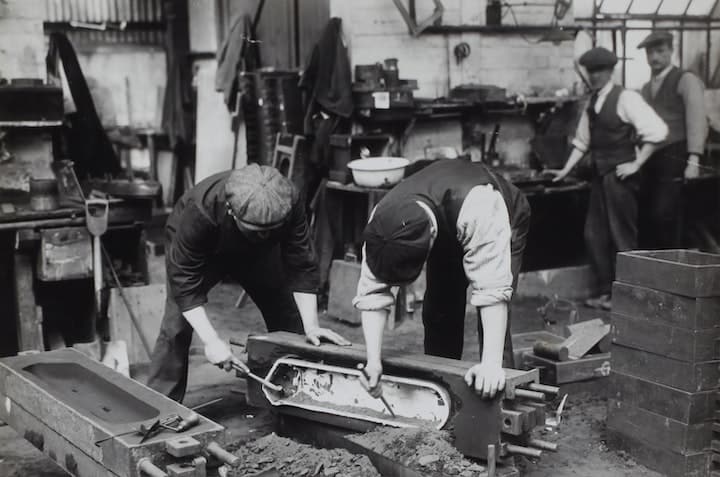
Establishing Rights and Principles
Pope Leo XIII – 1891
“Pope Leo’s Encyclical [is] present and alive in history, thus constituting what would come to be called the Church’s ‘social doctrine’”.
Pope St. John Paul II, 2
The historical uniqueness of Pope Leo XIII’s Rerum Novarum lies in that it both established and strongly defended the Church’s moral authority to promote justice in public life and went on to affirm those rights and principles we know so well and even take for granted — forgetting just how radical they were in 1891, even suffering outright criticism for some decades:
1. The dignity of the worker (and work) – as such.
2. Right to private property.
3. Right to form private and professional associations.
4. Right to a limitation of working hours.
5. Right to legitimate rest.
6. Right of women and children to be treated differently with regard to type and duration of work.
7. Right to a just wage.
8. Right to freely discharge one’s religious duties.
9. Established that the state should “specially care for and protect” the defenseless and the poor.

Establishing the Right to Work
Pope St. John Paul II – 1991
“The obligation to earn one’s bread by the sweat of one’s brow also presumes the right to do so.”
Centesimus Annus, 43
Pope St. John Paul II establishes the right to work (and from that work to support oneself and one’s dependents). (Centesimus Annus, 47)
Pope St. John Paul II also pointed out that integral human development can only occur in the workplace when there are guarantees of basic needs, and an environment conducive to development, including:
- Political and economic stability
- The certainty of better prospects for the future
- Improvement of workers’ skills
- Training of competent business leaders who are conscious of their responsibilities

Defining “Decent” Work
Pope Benedict XVI – 2009
Pope Benedict XVI outlined seven defining principles of what “decent” work is (Caritas in Veritate, 63)
1. It expresses one’s essential dignity.
2. It is freely chosen.
3. It enables respect and freedom from discrimination.
4. It allows families to meet their needs and provide for their children’s education.
5. It permits free organization of workers.
6. It “leaves enough room for rediscovering one’s roots at a personal, familial and spiritual level”.
7. It guarantees retirees “decent standard of living.”
Why Rerum Novarum is Seminal
“[I]t cannot be rash to say that Leo’s Encyclical has proved itself the Magna Charta upon which all Christian activity in the social field ought to be based, as on a foundation.”
Pope Pius XI, 39
Pope Pius XI – 1931
On the 40th anniversary of Rerum Novarum Pope Pius XI, in his great social encyclical, Quadragesimo Anno, mentions Pope Leo XIII and Rerum Novarum 56 times.
“[T]he teaching of Leo XIII, so noble and lofty and so utterly new“. (Quadragesimo Anno, 14)
“We cannot refrain…from offering our fullest gratitude to Almighty God for the immense benefits that have come through Leo’s Encyclical to the Church and to human society.” (Quadragesimo Anno, 16)
“[W]ith Leo’s Encyclical pointing the way and furnishing the light, a true Catholic social science has arisen.” (Quadragesimo Anno, 20)
“Catholic principles on the social question have as a result [of Leo’s work], passed little by little into the patrimony of all human society“. (Quadragesimo Anno, 21)
Read More
“[A]s Leo’s teachings were being widely diffused in the minds of men…they have come to be put into practice.” (Quadragesimo Anno, 23)
“The rules, therefore, which Leo XIII issued in virtue of his authority, deserve the greatest praise“. (Quadragesimo Anno, 31)
“[T]hose who would seem to hold in little esteem this Papal Encyclical and its commemoration either blaspheme what they know not or understand nothing of what they are only superficially acquainted with, or if they do understand convict themselves formally of injustice and ingratitude.” (Quadragesimo Anno, 39)
“[T]he teaching of Leo XIII… boldly attacked and overturned the idols of Liberalism, ignored long-standing prejudices, and was in advance of its time beyond all expectation…There were some also who stood, indeed, in awe at its splendor, but regarded it as a kind of imaginary ideal of perfection more desirable then attainable.” (Quadragesimo Anno, 14)
“With regard to civil authority, Leo XIII, boldly breaking through the confines imposed by Liberalism, fearlessly taught that government…must put forth every effort so that ‘through the entire scheme of laws and institutions . . . both public and individual well-being may develop spontaneously out of the very structure and administration of the State.'” (Quadragesimo Anno, 25)
“Sacred ministers of the Church, thoroughly imbued with Leo’s teaching…have resolutely demanded and promoted its enforcement.” (Quadragesimo Anno, 27)
“The rules, therefore, which Leo XIII issued in virtue of his authority…have even a higher claim to distinction in that they encouraged Christian workers to found mutual associations”. (Quadragesimo Anno, 31)
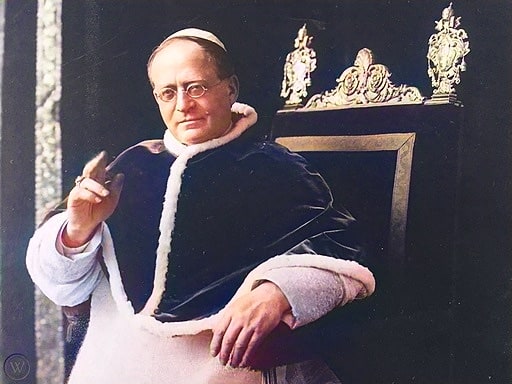

Pope Pius XI – 1931
On the 40th anniversary of Rerum Novarum Pope Pius XI, in his great social encyclical, Quadragesimo Anno, mentions Pope Leo XIII and Rerum Novarum 56 times.
“[T]he teaching of Leo XIII, so noble and lofty and so utterly new“. (Quadragesimo Anno, 14)
“We cannot refrain…from offering our fullest gratitude to Almighty God for the immense benefits that have come through Leo’s Encyclical to the Church and to human society.” (Quadragesimo Anno, 16)
“[W]ith Leo’s Encyclical pointing the way and furnishing the light, a true Catholic social science has arisen.” (Quadragesimo Anno, 20)
“Catholic principles on the social question have as a result [of Leo’s work], passed little by little into the patrimony of all human society“. (Quadragesimo Anno, 21)
Read More
“[A]s Leo’s teachings were being widely diffused in the minds of men…they have come to be put into practice.” (Quadragesimo Anno, 23)
“The rules, therefore, which Leo XIII issued in virtue of his authority, deserve the greatest praise“. (Quadragesimo Anno, 31)
“[T]hose who would seem to hold in little esteem this Papal Encyclical and its commemoration either blaspheme what they know not or understand nothing of what they are only superficially acquainted with, or if they do understand convict themselves formally of injustice and ingratitude.” (Quadragesimo Anno, 39)
“[T]he teaching of Leo XIII… boldly attacked and overturned the idols of Liberalism, ignored long-standing prejudices, and was in advance of its time beyond all expectation…There were some also who stood, indeed, in awe at its splendor, but regarded it as a kind of imaginary ideal of perfection more desirable then attainable.” (Quadragesimo Anno, 14)
“With regard to civil authority, Leo XIII, boldly breaking through the confines imposed by Liberalism, fearlessly taught that government…must put forth every effort so that ‘through the entire scheme of laws and institutions . . . both public and individual well-being may develop spontaneously out of the very structure and administration of the State.'” (Quadragesimo Anno, 25)
“Sacred ministers of the Church, thoroughly imbued with Leo’s teaching…have resolutely demanded and promoted its enforcement.” (Quadragesimo Anno, 27)
“The rules, therefore, which Leo XIII issued in virtue of his authority…have even a higher claim to distinction in that they encouraged Christian workers to found mutual associations”. (Quadragesimo Anno, 31)
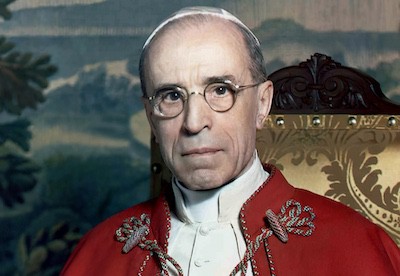
Pope Pius XII – 1941
On the 50th anniversary of Rerum Novarum Pope Pius XII, in his radio address delivered in the midst of World War II, mentions Pope Leo XIII and Rerum Novarum 21 times.
Pope Pius XII called “to the attention of the Catholic world a memory worthy of being written in letters of gold on the Church’s Calendar: the fiftieth anniversary of the publication of the epoch-making social encyclical of Leo XIII, Rerum Novarum“. (Pope Pius XII)
Pope Pius XII went on “to render to Almighty God from the bottom of Our heart, Our humble thanks for the gift, which… He bestowed on the Church in that encyclical…and to praise Him for the lifegiving breath of the Spirit which through it, in ever-growing measure from that time on, has blown on all mankind.” (Pope Pius XII)
Pope St. John XXIII – 1961
On the 70th anniversary of Rerum Novarum Pope St. John XXIII, in his great social encyclical, Mater et Magistra, mentions Pope Leo XIII and Rerum Novarum 28 times.
“Seldom have the words of a Pontiff met with such universal acclaim.” (Mater et Magistra, 8)
“[T]he Leonine encyclical is rightly regarded…as the Magna Charta of social and economic reconstruction.” (Mater et Magistra, 26)
“Beyond any shadow of doubt, his directives and appeals have established for themselves a position of such high importance that they will never, surely, sink into oblivion.” (Mater et Magistra, 8)
“[T]he Leonine encyclical enunciated those general principles of rightness and equity which have been assimilated into the social legislation of many a modern State“. (Mater et Magistra, 21)
Read More
“They opened out new horizons for the activity of the universal Church, and the Supreme Shepherd”. (Mater et Magistra, 8)
“The impact of this remarkable encyclical is still with us even today, so many years after it was written.” (Mater et Magistra, 9)
“In the weight and scope of his arguments, and in the forcefulness of their expression, Pope Leo XIII can have but few rivals.” (Mater et Magistra, 8)
“It is discernible in the writings of the Popes who succeeded Pope Leo. In their social and economic teaching they have frequent recourse to the Leonine Encyclical, either to draw inspiration from it and clarify its application, or to find in it a stimulus to Catholic action. It is discernible too in the subsequent legislation of a number of States. What further proof need we of the permanent validity of the solidly grounded principles, practical directives and fatherly appeals contained in this masterly encyclical? It also suggests new and vital criteria by which men can judge the magnitude of the social question as it presents itself today and decide on the course of action they must take.” (Mater et Magistra, 10)


Pope St. John XXIII – 1961
On the 70th anniversary of Rerum Novarum Pope St. John XXIII, in his great social encyclical, Mater et Magistra, mentions Pope Leo XIII and Rerum Novarum 28 times.
“Seldom have the words of a Pontiff met with such universal acclaim.” (Mater et Magistra, 8)
“[T]he Leonine encyclical is rightly regarded…as the Magna Charta of social and economic reconstruction.” (Mater et Magistra, 26)
“Beyond any shadow of doubt, his directives and appeals have established for themselves a position of such high importance that they will never, surely, sink into oblivion.” (Mater et Magistra, 8)
“[T]he Leonine encyclical enunciated those general principles of rightness and equity which have been assimilated into the social legislation of many a modern State“. (Mater et Magistra, 21)
Read More
“They opened out new horizons for the activity of the universal Church, and the Supreme Shepherd”. (Mater et Magistra, 8)
“The impact of this remarkable encyclical is still with us even today, so many years after it was written.” (Mater et Magistra, 9)
“In the weight and scope of his arguments, and in the forcefulness of their expression, Pope Leo XIII can have but few rivals.” (Mater et Magistra, 8)
“It is discernible in the writings of the Popes who succeeded Pope Leo. In their social and economic teaching they have frequent recourse to the Leonine Encyclical, either to draw inspiration from it and clarify its application, or to find in it a stimulus to Catholic action. It is discernible too in the subsequent legislation of a number of States. What further proof need we of the permanent validity of the solidly grounded principles, practical directives and fatherly appeals contained in this masterly encyclical? It also suggests new and vital criteria by which men can judge the magnitude of the social question as it presents itself today and decide on the course of action they must take.” (Mater et Magistra, 10)

Pope St. Paul VI – 1971
On the 80th anniversary of Rerum Novarum Pope St. Paul VI, in his Apostolic Letter, Octogesima Adveniens, mentions Pope Leo XIII and Rerum Novarum 6 times.
On this “historic date of the message of Pope Leo XIII on ‘the condition of the workers’…it is an honor and joy for us to celebrate today the anniversary of that message.” (Octogesima Adveniens, 4)
“The eightieth anniversary of the publication of the encyclical Rerum Novarum, the message of which continues to inspire action for social justice, prompts us to take up again and to extend the teaching of our predecessors, in response to the new needs of a changing world.” (Octogesima Adveniens, 1)
Pope St. John Paul II – 1981
On the 90th anniversary of Rerum Novarum Pope St. John Paul II, in his great social encyclical, Laborem Exercens, mentions Pope Leo XIII and Rerum Novarum 17 times.
“Human Work on the Ninetieth Anniversary of Rerum Novarum – Since 15 May of the present year was the ninetieth anniversary of the publication by…Leo XIII, of the decisively important Encyclical which begins with the words Rerum Novarum, I wish to devote this document to human work”. (Laborem Exercens, 1)
“[T]he complex and many-sided social question – the question of human work [began]… with the Encyclical Rerum Novarum.” (Laborem Exercens, 3)
“The experiences preceding and following the publication of the Encyclical Rerum Novarum form a background that endows that teaching with particular expressiveness and the eloquence of living relevance.” (Laborem Exercens, 11)
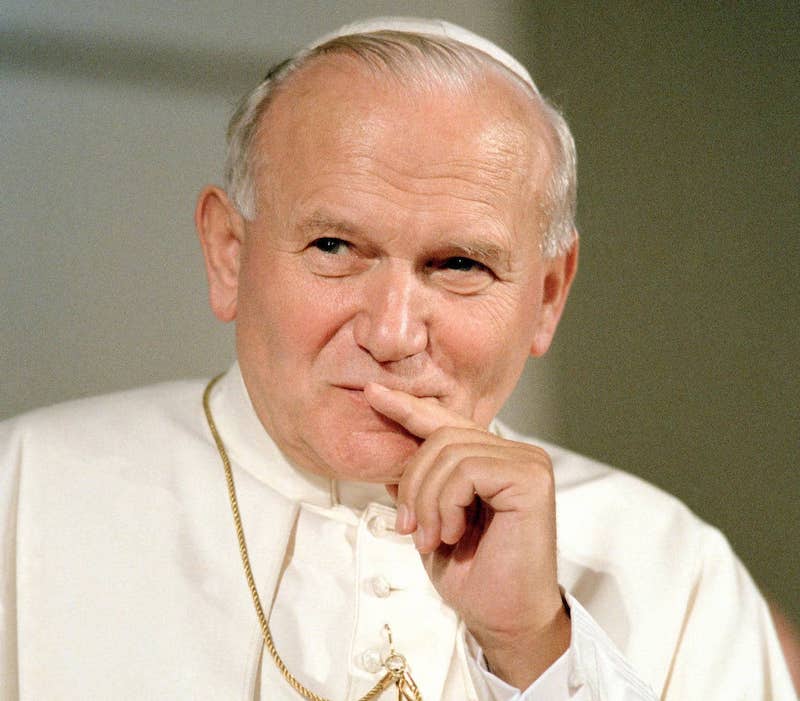

Pope St. John Paul II – 1981
On the 90th anniversary of Rerum Novarum Pope St. John Paul II, in his great social encyclical, Laborem Exercens, mentions Pope Leo XIII and Rerum Novarum 17 times.
“Human Work on the Ninetieth Anniversary of Rerum Novarum – Since 15 May of the present year was the ninetieth anniversary of the publication by…Leo XIII, of the decisively important Encyclical which begins with the words Rerum Novarum, I wish to devote this document to human work”. (Laborem Exercens, 1)
“[T]he complex and many-sided social question – the question of human work [began]… with the Encyclical Rerum Novarum.” (Laborem Exercens, 3)
“The experiences preceding and following the publication of the Encyclical Rerum Novarum form a background that endows that teaching with particular expressiveness and the eloquence of living relevance.” (Laborem Exercens, 11)
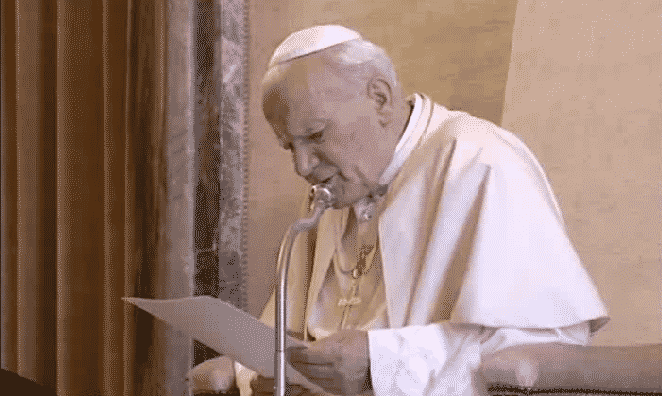
Pope St. John Paul II – 1991
On the 100th anniversary of Rerum Novarum Pope St. John Paul II, in his great social encyclical, Centesimus Annus, mentions Pope Leo XIII and Rerum Novarum 55 times.
“Pope Leo XIII…created a lasting paradigm for the Church.” (Centesimus Annus, 5)
“The Centenary of the promulgation…is an occasion of great importance for the present history of the Church and for my own Pontificate.” (Centesimus Annus, 1)
“[T]his doctrine is still suitable for indicating the right way to respond to the great challenges of today“. (Centesimus Annus, 5)
“[T]he historical picture and the prognosis which it [Rerum Novarum] suggests have proved to be surprisingly accurate in the light of what has happened since then.” (Centesimus Annus, 12)
Read More
“Rerum novarum gave the Church ‘citizenship status’ as it were, amid the changing realities of public life”. (Centesimus Annus, 5)
“The present Encyclical [Centesimus Annus] seeks to show the fruitfulness of the principles enunciated by Leo XIII, which belong to the Church’s doctrinal patrimony and, as such, involve the exercise of her teaching authority.” (Centesimus Annus, 3)
Rerum Novarum “is an Encyclical that has the distinction of having been commemorated by solemn Papal documents from its fortieth anniversary to its ninetieth. It may be said that its path through history has been marked by other documents which paid tribute to it and applied it to the circumstances of the day.” (Centesimus Annus, 1)
“Pope Leo foresaw the negative consequences — political, social and economic — of the social order proposed by ‘socialism’ which at that time was still only a social philosophy and not yet a fully structured movement…By defining the nature of the socialism of his day as the suppression of private property, Leo XIII arrived at the crux of the problem.” (Centesimus Annus, 12)
“Reading the Encyclical…we see how it points essentially to the socio-economic consequences of an error which…consists in an understanding of human freedom which detaches it from obedience to the truth, and consequently from the duty to respect the rights of others. The essence of freedom then becomes self-love carried to the point of contempt for God and neighbor, a self-love which leads to an unbridled affirmation of self-interest, and which refuses to be limited by any demand of justice.” (Centesimus Annus, 17)
“In Rerum novarum, Leo XIII strongly affirmed the natural character of the right to private property…The Successors of Leo XIII have repeated this twofold affirmation: the necessity and therefore the legitimacy of private ownership, as well as the limits which are imposed on it”. (Centesimus Annus, 30)
“In Third World contexts, certain objectives stated by Rerum novarum remain valid, and, in some cases, still constitute a goal yet to be reached”. (Centesimus Annus, 34)
Pope Francis – 2020
Pope Francis acknowledges Leo’s insight on the essential importance of work when he says in Fratelli Tutti:
“The biggest issue is employment…to provide everyone with the opportunity to nurture the seeds that God has planted in each of us”.
“This is the finest help we can give to the poor, the best path to a life of dignity”
“Work gives us a sense of shared responsibility for the development of the world, and ultimately, for our life as a people.” (Fratelli Tutti, 162)
“We can aspire to a world that provides…work for all. This is the true path of peace“. (Fratelli Tutti, 127)
Read More
“[W]ork is an essential dimension of social life, for it is not only a means of earning one’s daily bread, but also of personal growth, the building of healthy relationships, self-expression and the exchange of gifts.” (Fratelli Tutti, 162)
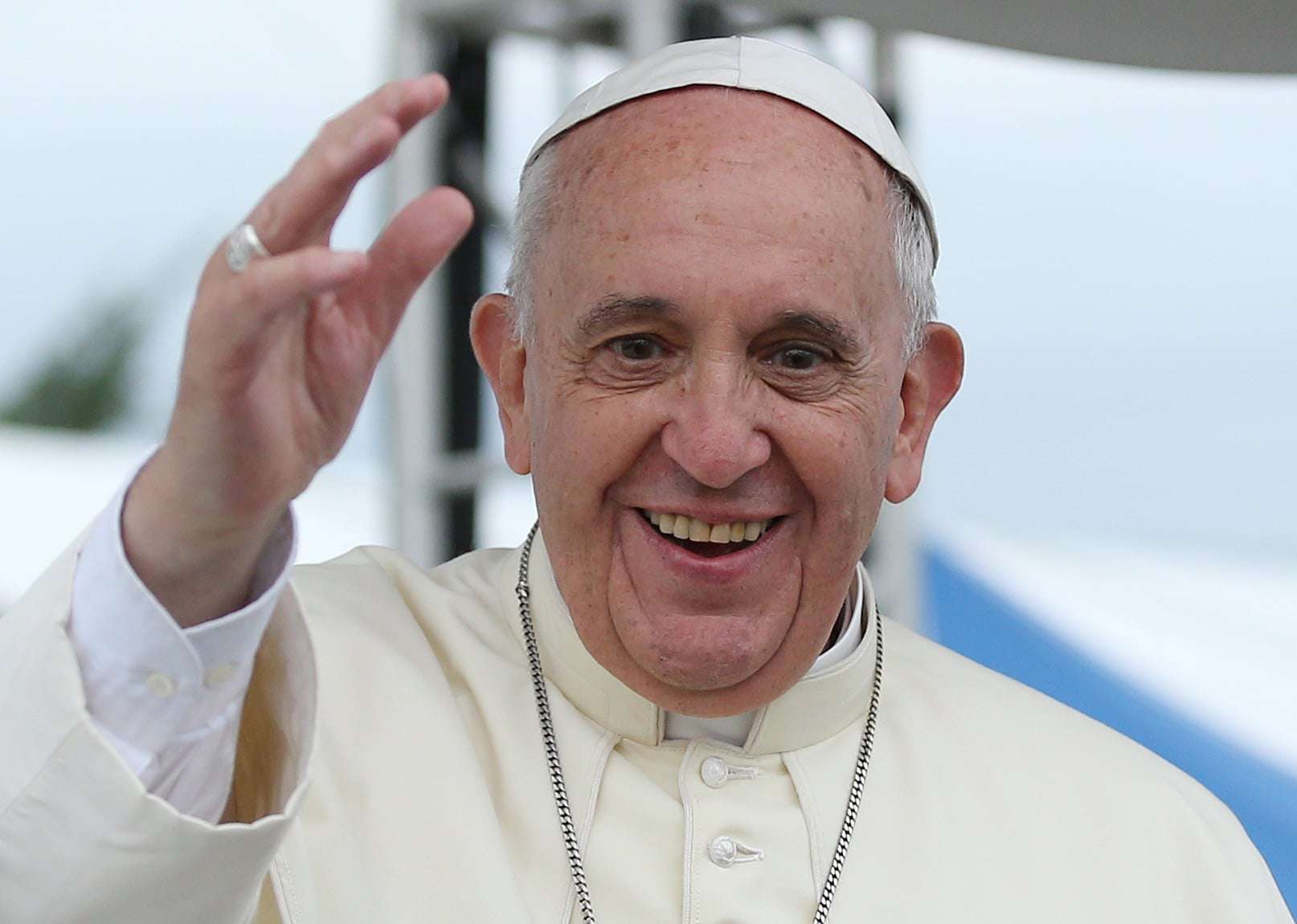

Pope Francis – 2020
Pope Francis acknowledges Leo’s insight on the essential importance of work when he says in Fratelli Tutti:
“The biggest issue is employment…to provide everyone with the opportunity to nurture the seeds that God has planted in each of us”.
“This is the finest help we can give to the poor, the best path to a life of dignity”
“Work gives us a sense of shared responsibility for the development of the world, and ultimately, for our life as a people.” (Fratelli Tutti, 162)
“We can aspire to a world that provides…work for all. This is the true path of peace“. (Fratelli Tutti, 127)
Read More
“[W]ork is an essential dimension of social life, for it is not only a means of earning one’s daily bread, but also of personal growth, the building of healthy relationships, self-expression and the exchange of gifts.” (Fratelli Tutti, 162)
FAQs
Q: What is the role of The Church in addressing the Dignity of Work?
A: “It is not for the Church to analyze scientifically the consequences that these changes may have on human society. But the Church considers it her task always to call attention to the dignity and rights of those who work, to condemn situations in which that dignity and those rights are violated, and to help to guide the above-mentioned changes so as to ensure authentic progress by man and society.” (Laborem Exercens, 1)
Q: Technology and Human Work: Help or Hindrance?
A: “[T]echnology is undoubtedly man’s ally. It facilitates his work, perfects, accelerates and augments it. It leads to an increase in the quantity of things produced by work, and in many cases improves their quality.
However, it is also a fact that, in some instances, technology can cease to be man’s ally and become almost his enemy, as when the mechanization of work ‘supplants’ him, taking away all personal satisfaction and the incentive to creativity and responsibility, when it deprives many workers of their previous employment, or when, through exalting the machine, it reduces man to the status of its slave.” (Laborem Exercens, 5)
Q: What is "The Gospel of Work"?
A: “Christianity brought about a fundamental change of ideas in this field, taking the whole content of the Gospel message as its point of departure, especially the fact that the one who, while being God, became like us in all things devoted most of the years of his life on earth to manual work at the carpenter’s bench. This circumstance constitutes in itself the most eloquent ‘Gospel of work’, showing that the basis for determining the value of human work is not primarily the kind of work being done but the fact that the one who is doing it is a person. The sources of the dignity of work are to be sought primarily in the subjective dimension, not in the objective one.” (Laborem Exercens, 6)

















